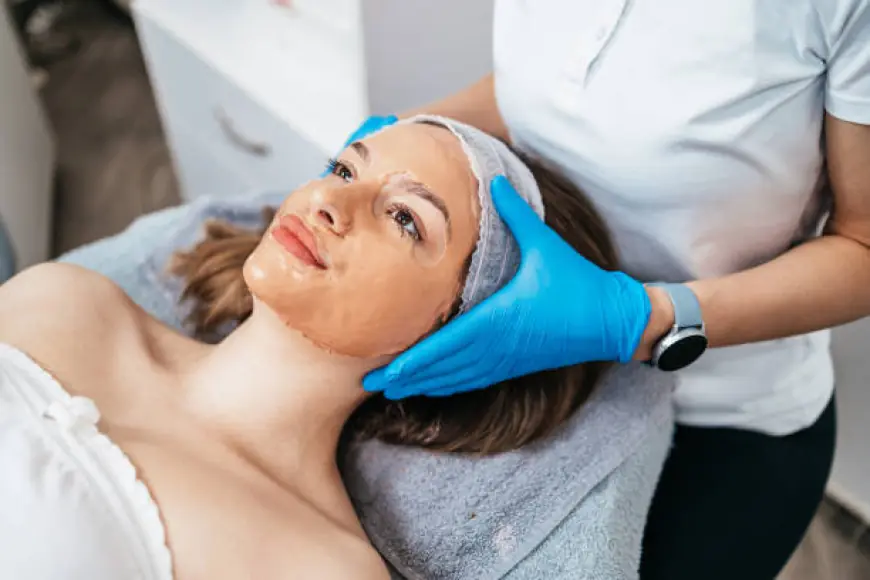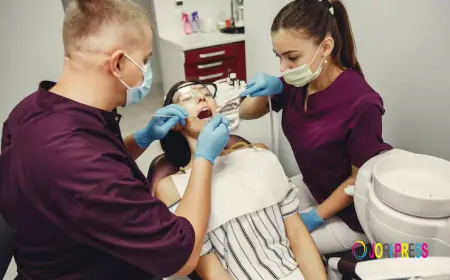Chemical Peels in Riyadh: Before and After Care Tips for Best Results
While generally safe, chemical peels can cause temporary side effects including redness, peeling, dryness, or mild irritation.

Chemical peels have become a popular cosmetic treatment in Riyadh for rejuvenating the skin and addressing common skin concerns such as acne scars, fine lines, and uneven pigmentation. This treatment uses a chemical solution to gently exfoliate the damaged outer layers of the skin, stimulating new cell growth and revealing a brighter, smoother complexion. Understanding proper care before and after the procedure is essential to maximize benefits and reduce any potential side effects.
What Are Chemical Peels and How Do They Work?
A chemical peel involves applying a carefully formulated chemical solution to the skin, which loosens and removes the outermost dead skin cells. This controlled exfoliation encourages the growth of fresh new skin underneath. Depending on the strength, peels can target different skin concerns: superficial peels improve mild skin irregularities, medium peels penetrate deeper for issues like moderate acne scarring, and deep peels address more severe wrinkles and sun damage.
In Riyadh, chemical peels in Riyadh are tailored to individual skin types and goals, with popular acids including glycolic, salicylic, and trichloroacetic acid (TCA). The procedure typically requires minimal downtime and offers both immediate and long-term improvements in skin texture, tone, and overall appearance.
Preparing for Your Chemical Peel: Essential Before-Care Tips
Proper preparation is vital for a successful chemical peel experience. Here are key steps to take before your appointment:
-
Consult a Dermatologist: Discuss your skin concerns, medical history, and any medications you are taking to ensure the treatment is safe for you.
-
Avoid Sun Exposure: UV exposure before a peel can increase sensitivity and the risk of complications, so use sunscreen diligently.
-
Stop Certain Products: Discontinue use of retinoids, exfoliants, or other irritating skincare products as advised by your dermatologist to reduce the risk of excessive irritation.
-
Hydrate Well: Well-moisturized skin responds better to peels and can recover faster.
-
Avoid Waxing or Hair Removal: At least one week prior, avoid any hair removal treatments in the area to be peeled.
Preparing your skin correctly helps prevent adverse effects and supports optimal results from the treatment.
What to Expect During the Chemical Peel Procedure
The chemical peel procedure generally follows these steps:
-
Cleansing: The skin is thoroughly cleansed to remove oils, dirt, and makeup.
-
Application of Chemical Solution: The peel solution is brushed or applied with a sponge onto the treatment area.
-
Waiting Period: The chemical is left on the skin for a few minutes, depending on the peel’s depth and type.
-
Neutralizing/Removal: After the prescribed time, the peel is neutralized or washed off to stop the exfoliation process.
-
Post-Treatment Guidance: The dermatologist will provide instructions to ensure the skin heals properly.
During and immediately after the peel, some mild stinging, redness, and warmth are normal and typically subside quickly.
Aftercare Tips for Chemical Peel Patients in Riyadh
Taking care of your skin after a chemical peel is crucial for healing and enhancing the treatment’s benefits. Follow these guidelines for the best results:
-
Keep Skin Hydrated: Use gentle moisturizers recommended by your dermatologist to soothe and protect peeling skin.
-
Avoid Sun Exposure: Freshly peeled skin is highly sensitive to UV damage. Apply broad-spectrum sunscreen generously and limit direct sun exposure.
-
Do Not Pick or Peel: Allow any flaking or peeling skin to shed naturally to prevent scarring or infection.
-
Use Mild Cleaners: Avoid abrasive scrubs, exfoliants, or strong cleansers until your skin fully recovers.
-
Hydrate Internally: Drink plenty of water to support skin health and recovery.
-
Avoid Makeup Initially: Give your skin time to heal before applying makeup, especially in the first few days.
Proper aftercare reduces the risk of complications such as hyperpigmentation or prolonged redness, ensuring you enjoy a radiant new complexion.
Benefits of Chemical Peels in Riyadh
Chemical peels offer a range of benefits for those seeking healthier, younger-looking skin:
-
Improved Skin Texture and Tone: Removal of dead skin cells smooths rough patches and evens discoloration.
-
Reduction of Fine Lines and Wrinkles: By stimulating collagen production, peels help diminish the appearance of aging signs.
-
Treatment of Acne and Scarring: Peels unclog pores and promote healing of acne scars.
-
Brightened Complexion: Peels reduce hyperpigmentation, age spots, and sun damage, revealing luminous skin.
-
Increased Confidence: Many patients notice a boost in self-esteem as their skin improves visibly.
In Riyadh’s skincare landscape, chemical peels have become a trusted choice for effective skin renewal with minimal downtime.
Potential Side Effects and When to Seek Medical Advice
While generally safe, chemical peels can cause temporary side effects including redness, peeling, dryness, or mild irritation. These typically resolve within days to weeks depending on peel depth. More serious reactions are rare but may include:
-
Severe redness or blistering
-
Signs of infection (pus, swelling, pain)
-
Persistent discoloration or scarring
If any of these occur, contacting your dermatologist promptly is important to prevent complications.
Frequently Asked Questions
How long does recovery take after a chemical peel?
Recovery times vary by peel type; superficial peels often heal within days, while medium to deep peels may take up to several weeks. Following aftercare advice can speed healing.
Can chemical peels be done on all skin types?
Yes, but treatment should be customized by a skincare professional. Darker skin tones require careful selection of peel type to avoid pigmentation issues.
How soon will I see results from a chemical peel?
Some improvements appear immediately as dull skin peels away, but full benefits usually develop over days to weeks as new skin forms.
How frequently can I get chemical peels?
Frequency depends on peel strength and skin sensitivity. Superficial peels may be repeated every few weeks, while deeper peels are less frequent.
Are chemical peels painful?
Most patients experience mild discomfort during the procedure, such as tingling or stinging, which usually fades quickly after treatment.
What's Your Reaction?
 Like
0
Like
0
 Dislike
0
Dislike
0
 Love
0
Love
0
 Funny
0
Funny
0
 Angry
0
Angry
0
 Sad
0
Sad
0
 Wow
0
Wow
0


















































